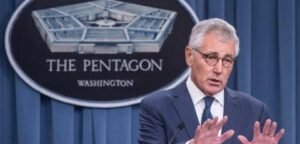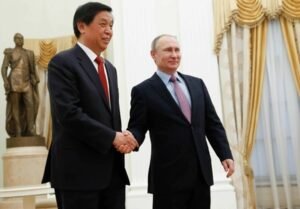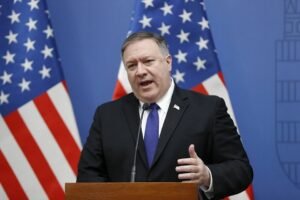
Four UK members rift amid Covid-19 5
On the evening of May 10, British Prime Minister Boris Johnson gave a televised speech from 10 Downing Street to announce the plan to ease the blockade.
Prime Minister Johnson also turned the government’s core message, `Stay at home, protect the national health service, save lives`, into the more vague advice `Stay alert, stay in control
But even before the Prime Minister’s message was broadcast, Scottish First Minister Nicola Sturgeon gave her own speech.
Speaking about Prime Minister Johnson’s plan, Ms Sturgeon said `having never seen the details of this plan, it cannot be applied to Scotland`, adding that she had asked Downing Street `not to deploy the message
`For about the last 20 years, the British government has only been in charge of the UK in major areas,` said John Denham, a former Labor MP and professor of British identity at the University of Southampton.
Former British Prime Minister Boris Johnson at 10 Downing Street, May 10.
Since the late 1990s, Westminster has devolved most of its powers to the legislatures in Scotland, Wales and Northern Ireland, allowing member governments to set their own domestic policies in areas such as health and education
Therefore, it was not too surprising that Ms. Sturgeon was confused when Prime Minister Johnson mentioned opening schools in his plan on the evening of May 10.
`When discussing school openings, Mr Johnson used jargon about the age of pupils that was quite confusing. The guidance he gave made it completely unclear which was applicable across the UK,
Multiple Downing Street sources said Johnson himself found the message confusing.
According to CNN analyst Luke McGee, while this may bring some comfort to the Scottish, Welsh and Northern Irlelanders, who often feel left out, it has raised questions about whether the union can
The most striking proof of this is the image of a public transport system filled with passengers flooding social networks on the morning of May 13, when most British people returned to work.
`You can now meet other people in public places in England, but not elsewhere in the UK,` McGee said.
Professor Denham thinks the pandemic is a wake-up call about how different the four members of the UK are.
McEwen agrees that the pandemic exposed the asymmetry of political power in the United Kingdom, which has been ravaged over the past four years by the debate over Britain leaving the European Union (or Brexit).
`The strained relationship between the UK and its member states over the years has been exacerbated by the fact that the four members are run by different political parties, with different ideologies and thinking.

Scottish First Minister Nicola Sturgeon speaks in Edinburgh, May 11.
All of this has created a political headache for Johnson, who is both British Prime Minister and leader of the Conservative and Unionist Party.
Many senior members of the coalition said Johnson’s aim was to protect his party’s interests, rather than actually protect the UK.
The problem is that many Britons don’t really take the union’s role seriously.
The view that Britain is at the center of the alliance has angered other members.
While no one believes that Covid-19 can spell the end for the UK, Johnson’s handling of the crisis has exacerbated the rift between the four member states that emerged from the Brexit crisis.
`If the UK wants this union to survive, it needs to build it on cooperation between all member states,` Denham said.





